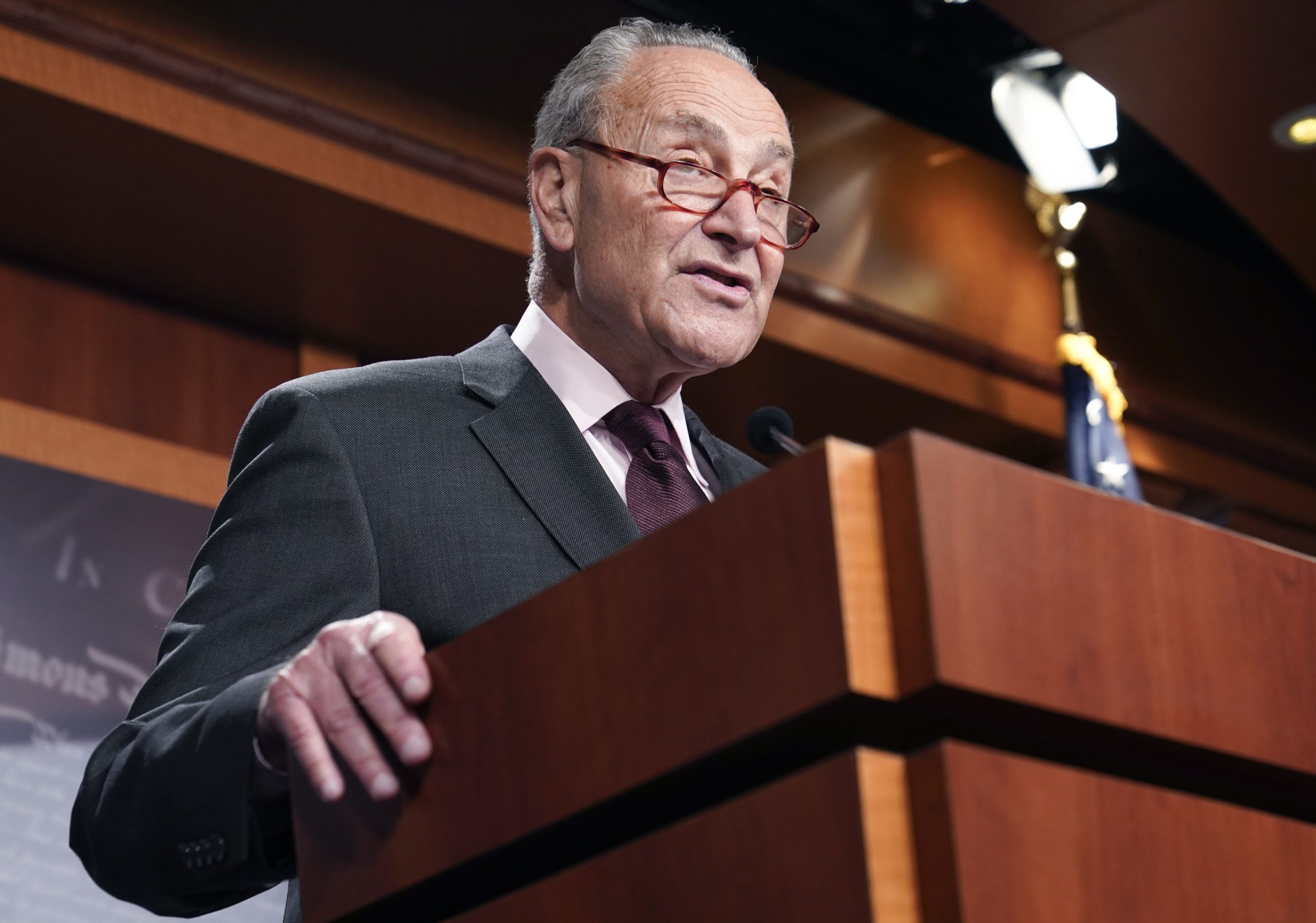Senate Democrats watched Sunday dawn from the Senate floor still on track to pass their signature climate, tax and health care package after slogging through an all-night attempt by Republicans to force changes.
The $700 billion-plus party-line legislation remained unscathed after more than six hours of “vote-a-rama,” the amendment marathon that allows any senator to force a vote on proposed tweaks to the measure. As of early Sunday morning, the upper chamber had voted on about a dozen and a half potential changes, all of which fell short of the support needed to alter the Democrats’ bill.
That was thanks to near-complete unity among Democrats in defeating amendments. The party’s senators locked arms to ward off any changes that could endanger the fragile coalition needed to steer their legislation to passage under rules that allow them to avoid a filibuster.
A few more potential threats loomed at sunrise Sunday, particularly on the legislation’s insulin price cap. But Republicans otherwise made little headway during a legislative endurance run of politically tricky votes on immigration, taxes and other issues.
“I want my colleagues to understand what this is really about. These motions … are motions to kill this bill, period,” said Senate Finance Committee Chair Ron Wyden (D-Ore.).
During the vote-a-rama, Democrats offered alternative amendments to buy some cover for their own vulnerable members on several GOP proposals. That included a side-by-side debate on Title 42, a polarizing Trump-era policy that placed limits on migration during the pandemic.
Democrats also rejected amendments from within their own caucus during overnight voting. Sen. Bernie Sanders (I-Vt.) tried to insert provisions that would bolster prescription drug reforms, expand Medicare and create a Civilian Climate Corps, but he failed to attract support from the vast majority of his colleagues. Only Georgia Sens. Raphael Warnock and Jon Ossoff joined Sanders in his effort to expand Medicare.
The vote-a-rama is the final episode of a lengthy drama that began more than a year ago with a Democratic budget designed to set the stage for a $3.5 trillion social spending package that could sidestep a filibuster. That vision for whittled down over the course of many months to the bill that the Senate is still set to pass later Sunday.
Democrats warned against making significant changes during the all-night Senate session, arguing that it was time to pass the bill after roughly a year of high-profile haggling that shined a spotlight on divisions between progressives and moderates.
The final bill was carefully negotiated to be able to win support from all 50 members of the Senate Democratic caucus. Sen. Joe Manchin (D-W.Va.) surprised his colleagues late last month when he reached a deal with Majority Leader Chuck Schumer (D-N.Y.) on tax and climate provisions as part of the agreement.
Before that Schumer-Manchin pact, Democrats had expected to pass a much smaller health care-only package to reduce drug costs and extend Affordable Care Act subsidies.
The deal struck by Schumer and Manchin kicked off a days-long race to sell it to the rest of the caucus and vet the legislative text against stringent Senate budget rules that Democrats must obey to pass their bill without a GOP filibuster. Sen. Kyrsten Sinema (D-Ariz.) later secured a handful of changes in exchange for her support to start debate.
Schumer made a handful of major changes to appease Sinema, eliminating language that would have tightened a loophole allowing certain investors to pay less in taxes that would have raised $14 billion in revenue. Instead, the pair agreed to add a 1 percent excise tax on stock buybacks, which is expected to raise $73 billion, while tweaking the corporate minimum tax to appease anxious manufacturers.
The bill could still change before it crosses the Senate’s finish line, however.
Democrats are still facing a Republicans challenge to their proposed $35 monthly cap on what people pay out-of-pocket for insulin, a plan championed by Warnock. Republicans have argued that the provision doesn’t comply with Senate budget rules.
The Senate parliamentarian, or the upper chamber’s rules referee, could decide in real-time whether the insulin provisions should stay or go.
If the parliamentarian rules against it, Democrats are expected to try to muster 60 votes to overrule the decision and keep it in the bill. That would require finding support from 10 Republicans, which they’re not expected to get.
“I need them to not block it,” Warnock said of Republicans. “If they don’t block it, it will pass.”
The outcome of the insulin provision was the biggest question mark as the hours-long voting marathon stretched into Sunday.
On Saturday, the party-line proposal survived Senate vetting of the Medicare portions of its prescription drug reform plan, while Democrats lost ground on a separate pillar that penalizes drug companies for raising prices on individuals with private health insurance. The legislation’s tax and environmental provisions also advanced unscathed.
Democrats ultimately preserved the core pieces of their proposal: lowering some prescription drug prices, providing more than $300 billion into climate change and clean energy, and imposing a 15 percent minimum tax on large corporations plus a new 1 percent excise tax on stock buybacks. The bill also increases IRS enforcement and extends Obamacare subsidies through the 2024 election.





















